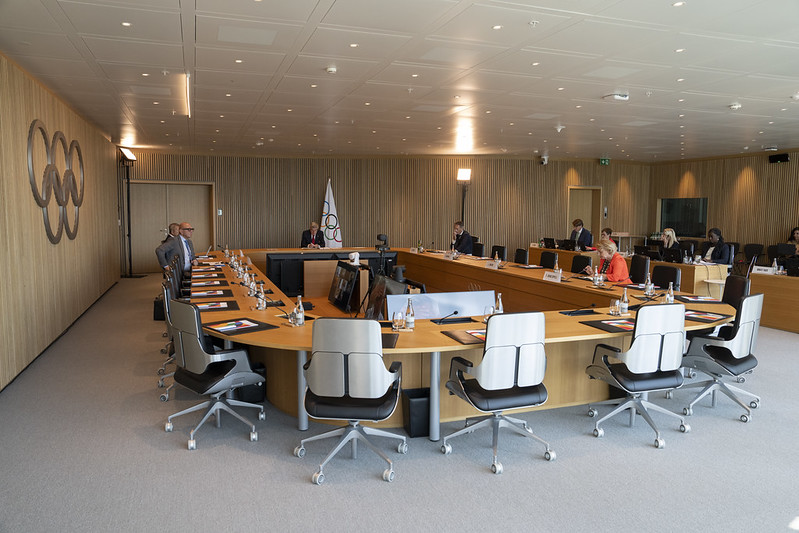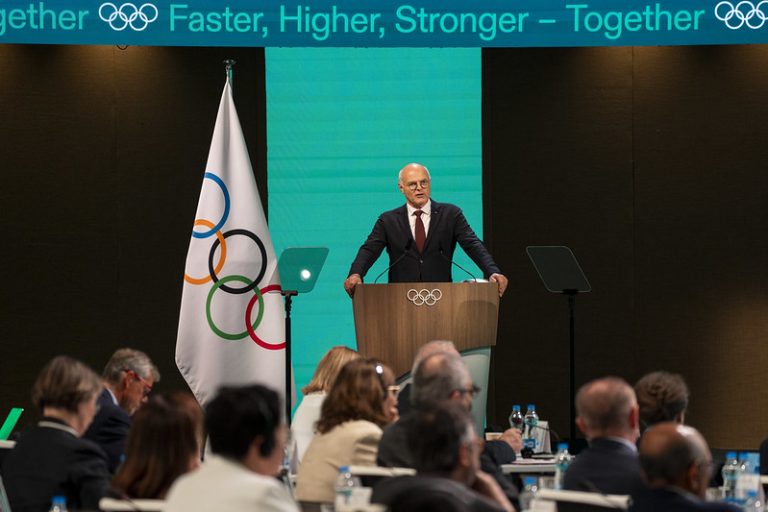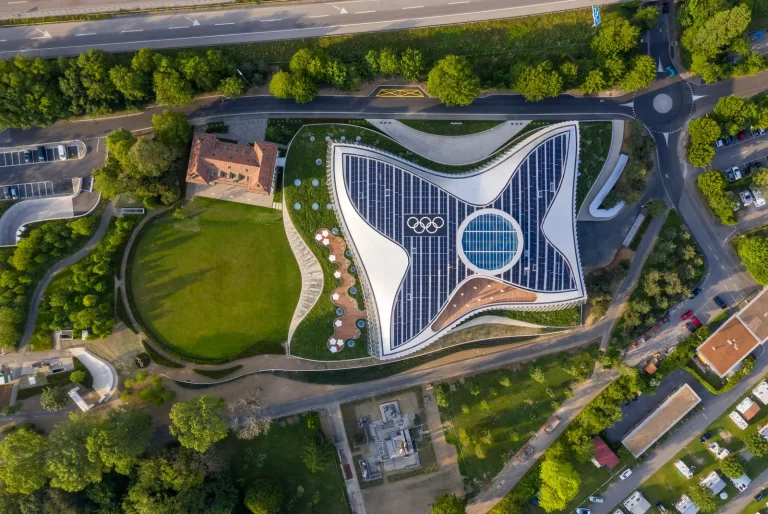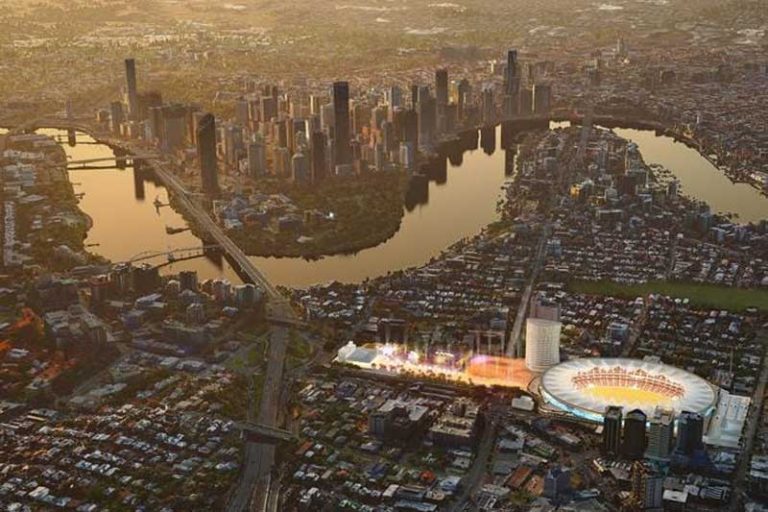BidWeek – As many as four or more Olympic and Paralympic bid meetings will take place Tuesday (November 21) and they could literally set the stage for almost a decade’s worth of Winter Games, but from the perspective of the International Olympic Committee (IOC) we don’t need to know about them.

An Olympic Games could be transformational, for better or worse, to communities being discussed at these meetings but voters, taxpayers, residents and businesses are being kept out of the loop. The IOC believes this is best.
Arguably one of the most critical dates on the agendas for both the 2030 and 2034 Winter Games, the meetings have never been officially published by the IOC or the organizations vying to host the Games. If you’ve already heard about these meetings, it’s only because reporters have picked up the information anecdotally from sparse stakeholder interviews or press conferences.
Even as I write, I have not been able to officially confirm all of the details from tight-lipped participants. But what I believe is this: bids organized by France, Sweden and Switzerland, having already submitted written details by an earlier deadline will present their 2030 bid project to the IOC’s Future Host Commission (FHC) led by chair Karl Stoss. By all accounts, these “short” presentations will be done virtually by Zoom and will include high-level government officials and stakeholders.
Salt Lake City, the only bid identified last month by Stoss to be exclusively targeting the 2034 edition, will also present plans Tuesday. The U.S. city has also offered itself up as plan B for 2030 should other options fail.
The nature of the meetings suggest these will be final, powerful pitches designed to convince the FHC that their bid belongs on the list for targeted dialogue that the IOC Executive Board is set to name at a quarterly board meeting scheduled to take place November 28 to December 1 in Paris. Any number of candidates can be named to move forward in this way, giving them the opportunity of appearing on the final election ballot next year. Unnamed bids will likely need to wait until at least 2038 for another chance.
These are consequential meetings indeed.
But the IOC’s policy on the so called ‘ongoing dialogue’ phase of the Olympic bid process that is culminating this week is that it should proceed in private without any commitment from interested bidders unless they choose to reveal themselves. The curtain is designed to allow regions to explore the opportunity of hosting without risking the public embarrassment of missing the shortlist. As IOC President Thomas Bach said four years ago when the process was designed, it’s to eliminate “too many losers”.
That didn’t stop Stoss from revealing those already in targeted dialogue at the IOC’s all members Session last month. It also didn’t prevent former FHC chair Octavian Morariu from naming Vancouver, Barcelona and Salt Lake City 2030 contenders in January 2020 before the former two were forced to abandon plans and the latter shifted to 2034.
So what’s going on?
To be clear, the IOC is a private organization and can choose Olympic hosts any way it feels appropriate. After a couple of decades of Olympic host elections where the 100-or-so IOC members chose candidates that may have been less then optimal, the Executive Board decided it was time to control the process in a way that they can select hosts that will further the goals of the Olympic Movement. By focusing on those fundamentals and not the politics of appealing to a mass of members, the IOC has reduced bidding costs and lowered the risks of inadvertently signing on a popular but less qualified applicant.
In short, the Executive Board takes most of the decision making out of the hands of members and narrows the choice to only applicants that are deemed acceptable – even if there is only one.
It’s actually a prudent way for an organization to conduct business.
But the reduced transparency and concentrated control also opens the door to more corruption and even more politics.
This process was first engaged to elect the 2032 Summer Games host, and we didn’t have the prior example to reference. The IOC FHC and Executive Board very stealthily arranged the final pitch meeting after offering other National Olympic Committees (NOC) in ongoing dialogue the opportunity to be included. This was in 2021, four years ahead of the typical bid timeline so most were not ready.
Brisbane’s bid, while being groomed by Australian IOC Vice President John Coates who also designed the new bid process, was ready.
The Olympic world was then shocked when the IOC Executive Board announced Brisbane the sole preferred candidate for the 2032 edition, meaning that the Queensland capital would most likely go on to host the Games. It was shortly after the same type of meeting that will take place Tuesday.
In effect, the semi-secret Zoom calls could be final bid presentations. For Salt Lake City this is almost a certainty as it remains the only candidate for 2034.
But if one of the 2030 bids is suddenly singled out as preferred candidate, it could be jarring for a possibly unengaged host community.
Indeed, that has been the experience in South East Queensland where there has been growing resistance to Brisbane’s Olympic plans, and costs for rebuilding the iconic Gabba Cricket Grounds have skyrocketed. Many residents feel they weren’t properly engaged and the vetting typical of a robust bid process did not happen.
This could become true of the 2030 bids.
As mentioned, the IOC is private and can conduct business as it feels necessary.
But then there is this: most NOC’s are either directly or indirectly taxpayer funded. The NOC’s pay at least a portion of the bid expenses. You would think taxpayers would want transparency around a large business engagement they are paying for.
Yet, Tuesday’s meetings are almost completely off the books.
When I reached out for details, most of the individual bids were happy to fall in line with the IOC’s edict.
A spokesperson for Swiss Olympic only offered that NOC president Jürg Stahl would lead a delegation of “several high-ranking members of the steering committee of Switzerland’s Winter Olympic Project as well as by representatives from the Swiss winter sports federations and Swiss politics.”
The Swedish and French NOC’s did not provide any comment or information regarding Tuesday’s possible meetings.
A Salt Lake City 2034 bid spokesperson was the most forthcoming, identifying that the engagement would be a “short call” Tuesday morning Utah time (UTC -7) and would include bid president Fraser Bullock, chair Catherine Raney Norman, Utah governor Spencer Cox, Salt Lake City Mayor Erin Mendenhall, Olympic downhill ski champion Lindsey Vonn, United States Olympic and Paralympic Committee (USOPC) chair Gene Sykes, and USOPC CEO Sarah Hirshland.
It’s worth noting that Mendenhall will be on the call for her city to host its second Games while voters are casting ballots for her possible second term in office. That’s right – it will be election day in Salt Lake City.
Also notable is that Salt Lake City’s bid has been developed over more than four years and enjoys an almost unbelievable 80 percent public support along with widespread multi-level government backing. Transparency has not been an issue with the American bid.
Though Sweden’s bid is based on the failed Stockholm-Åre 2026 project, its 2030 plans along with those from Switzerland and France are all less than 10 months in development. One of them could become the de facto 2030 host next week.
The historical contrast is remarkable. Before bid reforms were introduced in 2019, projects had to make multiple publicly available presentations to IOC members, International Federations and other governing bodies. Bid dossiers were submitted and published and evaluation meetings and visits were planned and announced at the outset of the campaign. The IOC provided extensive reporting on applicants ahead of any shortlist announcements. The carefully laid out process took about two years.
The Olympic library has detailed documents of most past bids, even if they barely made it out of the blocks.
It may be years before we know for sure whether secrecy will help or harm the Olympic bid process.
But one thing I do know for certain, in just over a week from now there will be a lot of very surprised people as they learn their future has been altered by leaders who have conducted business behind tightly closed doors.


